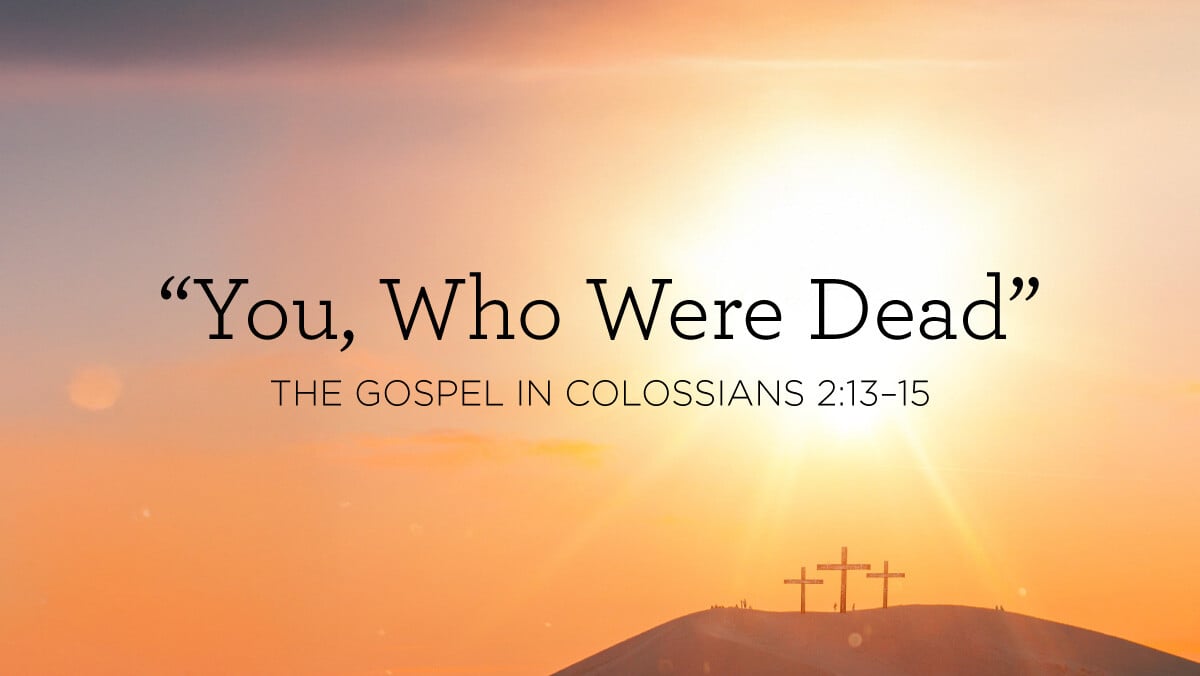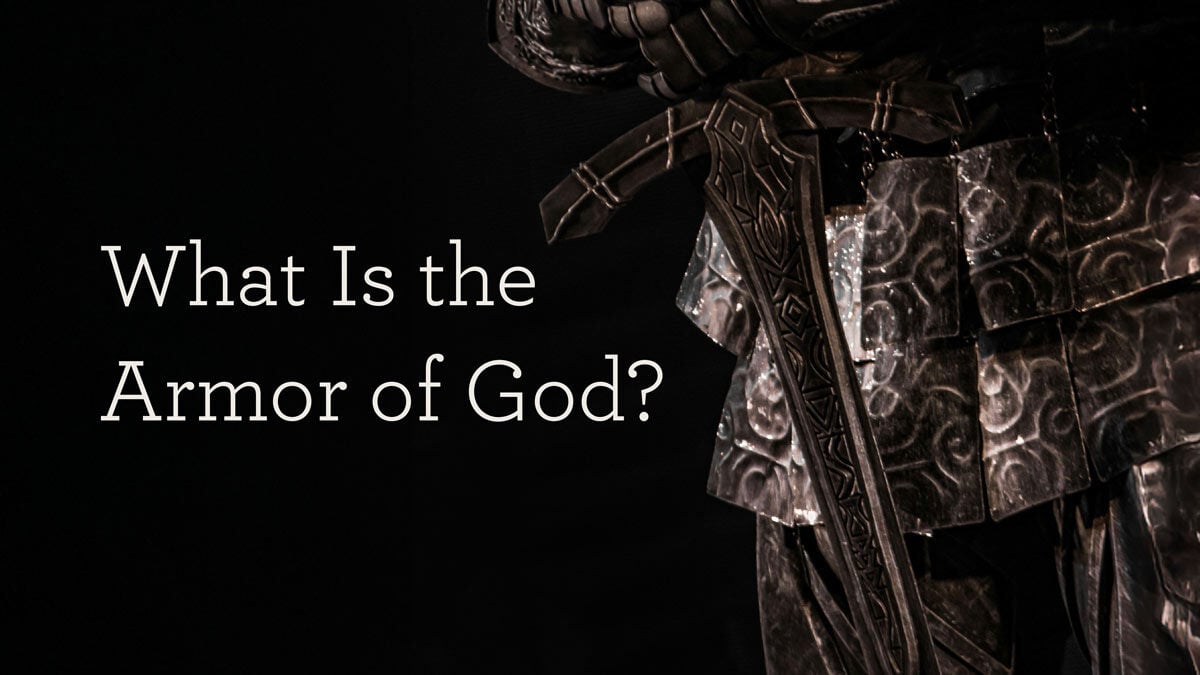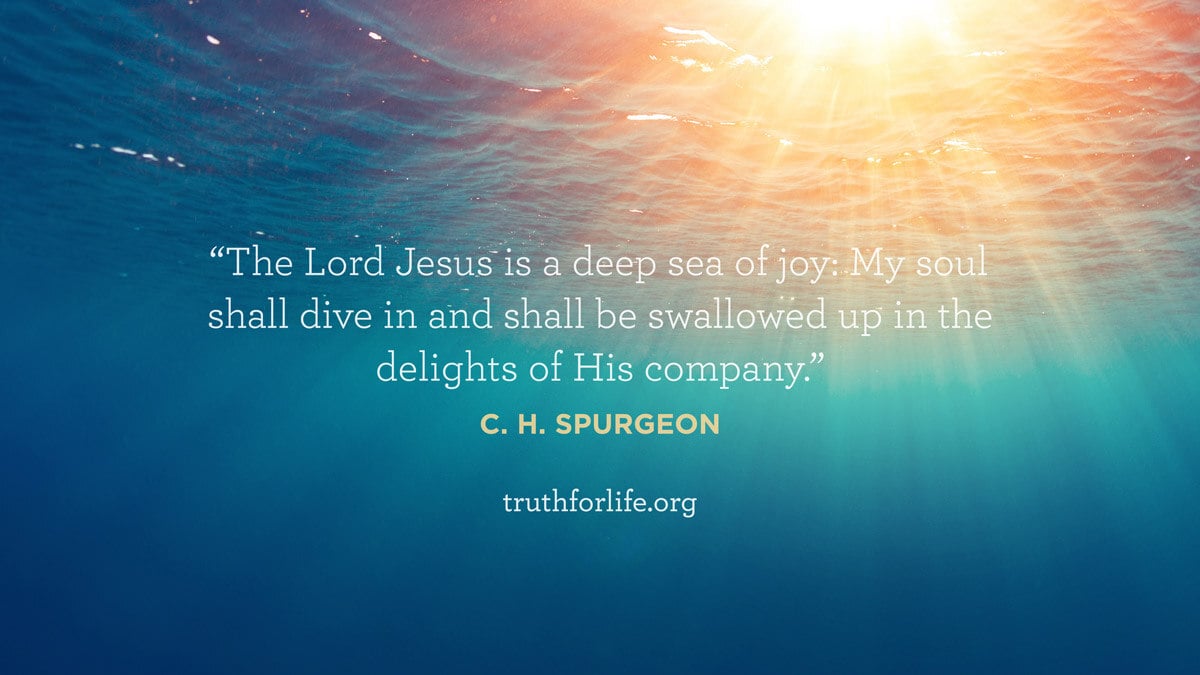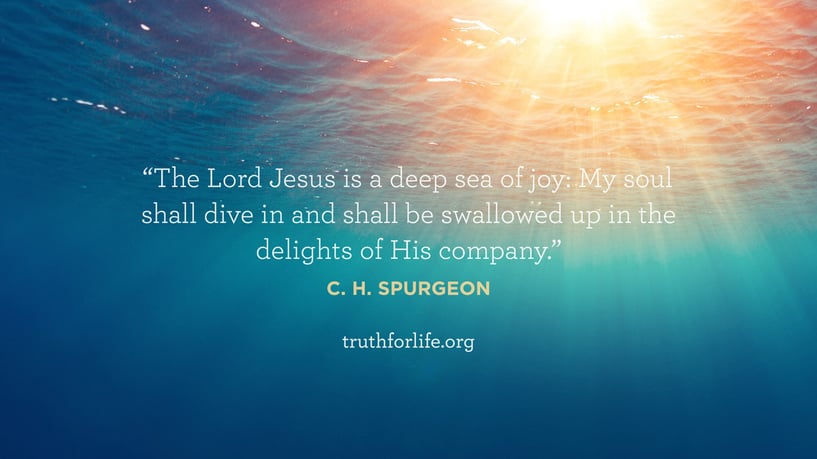
If we are going to stand in the ranks of Christ’s army, we cannot be naive about the battle in which we fight. The same grace that reconciles us to God antagonizes us to the devil.
But God has not left us empty-handed. He has equipped us for the fight. And so we do not dress casually, but we put on the outfit that Paul describes in Ephesians 6: “Take up the whole armor of God, that you may be able to withstand in the evil day, and having done all, to stand firm” (v. 13).
As Paul said in another place, “the weapons of our warfare are not of the flesh” (2 Cor. 10:4)—that is, not things made of cloth or metal to put on our physical bodies. What, then, has God given us for the spiritual battle in which all Christians find themselves engaged?
The Belt of Truth
Stand therefore, having fastened on the belt of truth… (Eph. 6:14)
For the Roman soldier, who was the epitome of military prowess in Paul’s day, the belt was the foundational element of a piece of armor. The other pieces were attached to the belt and were secured by it.
To wear the belt of truth is to recognize the importance of truth in an objective sense: “the word of truth, the gospel of your salvation,” by which the Holy Spirit adopts and seals us (Eph. 1:13). It is God who saves us, and to depart from the Word of Truth delivered to us in the Gospel is to abandon our Commander in Chief, to undermine our faith, and to make useless the whole kit that God has given.
But there is also a subjective element to truth—that is, our truth telling: “Having put away falsehood, let each one of you speak the truth with his neighbor, for we are members one of another” (Eph. 4:25). The Christian is not afraid of the truth but brings all things out into the light, where Christ may shine on them and bring newness of life through the Gospel (Eph. 5:13–14).
The Breastplate of Righteousness
… and having put on the breastplate of righteousness… (Eph. 6:14)
The breastplate, secured by the belt, protects the center of the body. For the Christian, righteousness protects us. And as with the belt, there is both an objective and a subjective dimension.
First and foremost, our objective righteousness before the judgment seat of God is the Lord Jesus Christ: “For our sake [God] made him to be sin who knew no sin, so that in him we might become the righteousness of God” (2 Cor. 5:21). In our union with Christ, we have a standing with God that the enemy cannot threaten, and we have no reason to fear the wrath of God.
Subjectively, we are also to live out that righteousness in all our days and all our decisions. If we declare ourselves to be truly in Christ and yet live unrighteous lives, we will be susceptible to every temptation. But what God has done for us in Jesus enables and quickens us to a life that pleases Him, guarding us from the snares of sin.
The Shoes of Readiness
… and, as shoes for your feet, having put on the readiness given by the gospel of peace. (Eph. 6:15)
A significant part of the military prowess of Roman armies came down to good footwear. Well-fitted studded boots provided traction, allowed for long marches, and provided an advantage over poorly shod enemies.
The Christians shoes are “the readiness” stirred up by “the gospel of peace.” Isaiah had proclaimed, “How beautiful upon the mountains are the feet of him who brings good news” (52:7). Paul himself was “eager” to preach the Gospel because of the grace and salvation that it brings to those who hear and believe (Rom. 1:15).
Wherever we go, whoever we are, we have an opportunity, in word and deed, to proclaim the Gospel. Having buckled on the truth belt and donned the righteousness breastplate, we cannot neglect the shoes by which we go and proclaim what God has done. No, we are to take on the whole armor and, in so doing, proclaim the Gospel!
The Shield of Faith
In all circumstances take up the shield of faith, with which you can extinguish all the flaming darts of the evil one… (Eph. 6:16)
Roman soldiers were equipped with a large shield, more than a meter high and nearly a meter wide, which a group of soldiers in formation could use to protect themselves from enemy arrows. Arrows carrying flaming pitch would strike the leather-bound shields and would shortly be extinguished.
The Evil One is an accuser. He fires the flaming darts of false guilt with great rapidity and skill. Yet we can take up faith as our shield as we remind ourselves of the truth that girds us together:
From whence this fear and unbelief?
Hath Thou, O Father, put to grief
Thy spotless Son for me?
And will the righteous Judge of men
Condemn me for that debt of sin
Which, Lord, was charged on Thee?
As darts of temptation fly our way, we may “resist …, firm in the faith,” knowing that “the God of all grace … will himself restore, confirm, strengthen, and establish” us (1 Peter 5:9–10). As we set our hope in Christ and the Gospel, we can walk securely in righteousness through His power at work in us.
The Helmet of Salvation
… and take the helmet of salvation… (Eph. 6:17)
The Roman soldier’s helm was cast from bronze or iron. Nothing short of an ax or a hammer could pierce it. It was a source of security for one of the most vulnerable parts of the body.
We have security through the Gospel of Jesus Christ that the devil cannot penetrate. “I give them eternal life,” Jesus promised regarding His disciples in all ages, “and they will never perish, and no one will snatch them out of my hand” (John 10:28). To know that we are in Christ is to know that we are safe in the hands of the Savior, whatever evil may befall us in this world of trouble (John 16:33).
As we experience the hope offered to us by this promise, we can again resist the Evil One. As Martyn Lloyd-Jones put it,
When you are attacked, besieged, tried, tempted, and the devil says, “There is nothing in it, you might as well get out of it, Christianity makes false promises, it does not fulfil them—give up!”, you answer by saying, “No, I have not been led astray by this teaching. I have always known that there are steps and stages in salvation. I know that I am saved, I know that I am being saved, I know that ultimately I shall be completely saved.”
The Offensive Weapons
… and the sword of the Spirit, which is the word of God, praying at all times in the Spirit, with all prayer and supplication. (Eph. 6:17–18)
Finally, we leave the armor behind, and we come to the offensive elements of spiritual warfare.
The Word of God strikes many people today—much like a medieval sword in a Scottish museum—as historically interesting but practically useless. “Surely,” they say, “you don’t believe that book, do you?” But we do believe it, and we have reasons to trust it. We know that it is “profitable for teaching, for reproof, for correction, and for training in righteousness, that the man of God may be complete, equipped for every good work” (2 Tim. 3:16–17). And we remember that the Lord Himself turned to the Scriptures when it came time to counter the enemy’s temptations (Matt. 4:1–11; Luke 4:1–13).
To depart from the Word of Truth is to abandon our Commander in Chief, to undermine our faith, and to make useless the whole kit that God has given.
Paul sets the Word alongside prayer. They always belong together. The devil is unafraid of prayerless proclamation. As Paul himself wrote, “The letter kills, but the Spirit gives life” (2 Cor. 3:6). It is as God speaks to us through the Word that we will find power to overcome the Evil One. The Scriptures are not a talisman with which to ward off evil; they are a tool God has given us to bring us to Him, where we can listen to His voice and draw on His power for a life of faith.
“The Panoply of God”
In one of Wesley’s old hymns we find these lines:
Stand then in His great might,
With all His strength endued,
And take, to arm you for the fight,
The panoply of God.
A panoply is a full suit of armor, not lacking in any part. If we are to take our stand against the Evil One, we cannot neglect one piece of the kit—not the readiness of the Gospel, not the Word, not prayer, nor any other. We must wear it all so that we may be ready for every offensive that comes our way. We will succeed when we give ourselves over in trust to our faithful God, who by His Spirit guards us for the day of redemption.
This article was adapted from the sermons “The Full Armor of God” and “The Soldier’s Weapons” by Alistair Begg.











 As I looked out at the crowd that had gathered for the CMS Summer School in Katoomba, Australia, this past January, a number of thoughts were running through my mind. I was humbled by the invitation that had brought me to the event and by the upholding prayer from my own congregation, which was, at that moment, so far away. I was also struck by the extent to which those attending were engaged in CMS’s vision to seek “a world that knows Jesus.”
As I looked out at the crowd that had gathered for the CMS Summer School in Katoomba, Australia, this past January, a number of thoughts were running through my mind. I was humbled by the invitation that had brought me to the event and by the upholding prayer from my own congregation, which was, at that moment, so far away. I was also struck by the extent to which those attending were engaged in CMS’s vision to seek “a world that knows Jesus.”














